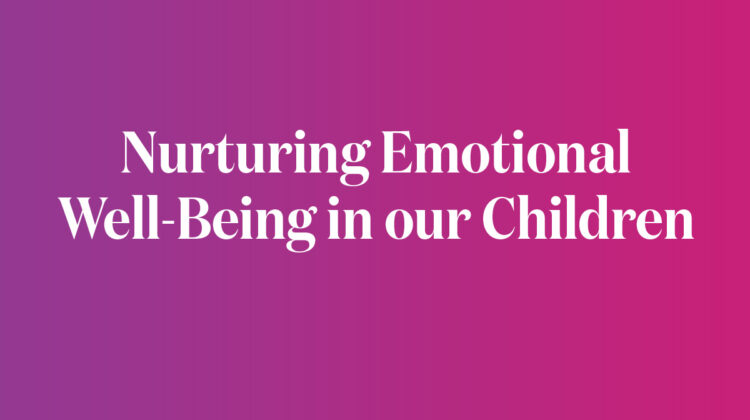When emotions are high, people often act and do things they would not do on a normal day. When you are a young child, this might very well be what you do all the time.
Consider this scenario: Bradley is struggling with his spelling words. Instead of screaming and giving up, he tells his dad how frustrated he is and asks for help. Or this one: Haley’s friend gets some upsetting news and cancels their plans to go to the movies. Haley understands why her friend doesn’t feel like socializing and makes other plans.
These reactions may not appear significant at first glance. However, they signify a critical set of abilities constituting what is referred to as “emotional intelligence” (EI). Unlike IQ tests, emotional intelligence isn’t quantified in traditional ways. Nonetheless, it plays a pivotal role in assisting us in navigating obstacles and effectively responding to various situations. It aids us in establishing meaningful connections with those around us.
Emotional intelligence is the ability to process feelings, our own and other people’s. It means being able to notice, understand and take action on emotions in an effective way. As parents and educators, fostering emotional intelligence in children is a fundamental responsibility that lays the foundation for their future relationships, academic achievements, and mental health.
The concept of Emotional Intelligence (EI) has been present for decades, gaining popularity with the 1995 publication “Emotional Intelligence: Why It Can Matter More Than IQ” by psychologist Daniel Goleman. Goleman outlined emotional intelligence as consisting of five key elements:
Self-awareness
This involves individuals recognizing their emotions in the moment and understanding how their moods influence others.
Self-regulation
People who possess self-regulation can control their emotional responses, considering potential consequences before acting impulsively.
Motivation
Individuals with strong motivation can achieve their objectives despite encountering negative or distracting emotions.
Empathy
Empathetic individuals can comprehend and share the emotions of others.
Social Skills
Those with developed social skills can effectively manage relationships, understanding which behaviors warrant positive responses from others.
Emotional self-control, a significant aspect of emotional intelligence, refers to the skill of controlling one’s emotional experiences and outward displays of feelings. Through repeated practice, children improve their ability to regulate their emotions. Typically, by the age of four, most children begin using techniques to reduce the impact of upsetting external factors. For instance, they may shield their eyes when frightened or block their ears in response to loud sounds.
Feelings serve a purpose in our lives. The only way you can learn to regulate a feeling is to feel it. That is how kids learn. This is how kids learn to self regulate. The foundational aspect of emotional intelligence involves being aware of and understanding our emotions. Before we can effectively manage and express our emotions, we must first acknowledge and comprehend them. Emotions are integral to human evolution and serve specific purposes.
Children need to experience and learn to tolerate these emotions in order to cultivate self-control and emotional intelligence. But we can all agree that children cannot be what they do not see. Keeping that sentence in mind here are some tools to enable your child to comprehend and describe their emotions in a positive and healthy way.
Model positive behavior. Show your child how you respond to challenging situations. When you model listening, patience and understanding they will be more likely to respond in that way. Remember, you are the one that teaches them how to handle the world.
Create a safe and accepting space where children feel comfortable expressing their feelings without fear of judgment or ridicule.
Foster Empathy and Perspective-Taking. Cultivate empathy by encouraging children to consider other people’s perspectives and feelings.
Provide opportunities for children to practice empathy through acts of kindness, cooperation, and understanding towards others.
Promote Self-Awareness and Reflection. Help children develop self-awareness by encouraging reflection on their thoughts, feelings, and behaviors. Prompt them to consider how their actions impact themselves and others. Engage in activities like journaling, mindfulness exercises, and provide activities that promote self-reflection.
Provide Opportunities for social interactions. Encourage children to participate in group activities, team sports, or collaborative projects that foster social skills like communication, cooperation, and empathy.
Investing in the emotional intelligence of children is a continuous process that requires patience, empathy, and consistent support from parents and educators. By implementing the strategies outlined, we can empower children to navigate the complexities of their emotions, build meaningful relationships, and thrive in all aspects of their lives. Remember, nurturing their emotional well-being today lays the groundwork for a brighter and more resilient future tomorrow.

